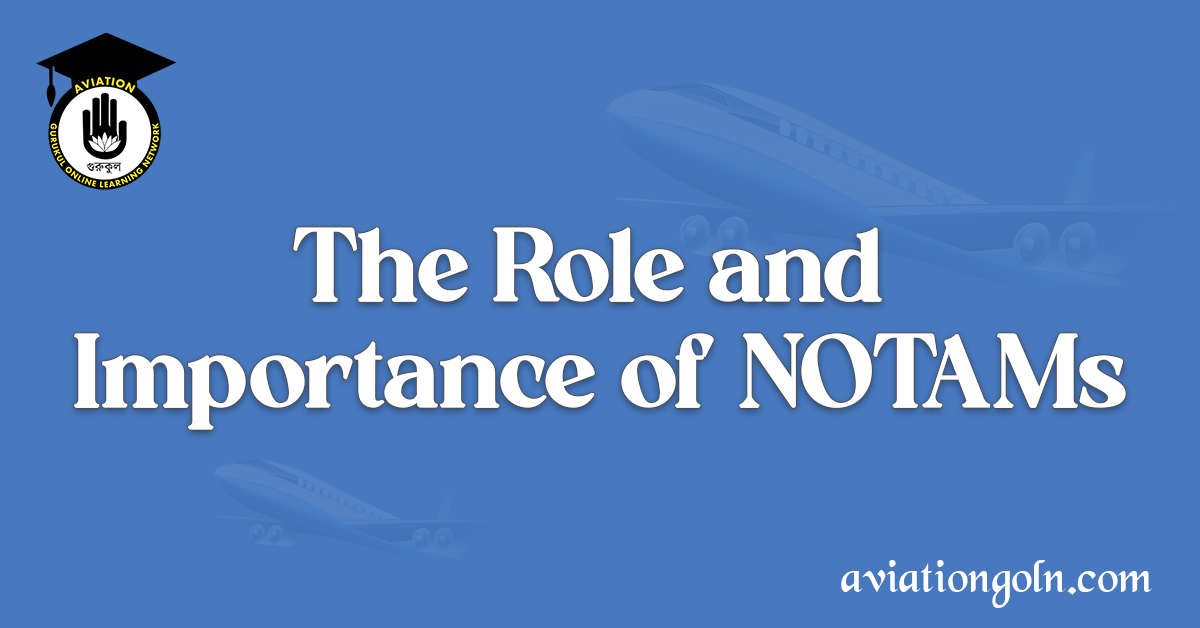The Role and Importance of NOTAMs: Navigating the skies as a pilot is not just about knowing how to control an aircraft. It is about being informed, staying ahead of potential obstacles, and ensuring the safety of everyone on board. One primary tool that aids pilots in achieving this level of preparedness is the Notice to Airmen (NOTAM). Together with Pre-Flight Information Bulletins, NOTAMs form the backbone of a pilot’s situational awareness before and during a flight.
The Role and Importance of NOTAMs: NOTAM and Pre-Flight Information Bulletins
Understanding NOTAMs
1. Definition and Origins
A Notice to Airmen (NOTAM) is a notification issued by aviation authorities to provide pilots with crucial information about potential hazards along a flight route or at a location that could affect the safety and efficiency of flight operations. NOTAMs originated from the need to inform pilots about temporary changes or situations that aren’t already included in the published aeronautical charts or manuals.
2. Types of NOTAMs
- Distant (D) NOTAMs: Distributed beyond the area of jurisdiction of the Flight Service Station (FSS) and are meant for flight operations.
- Local (L) NOTAMs: Relevant for the airport where the FSS is located and include changes like runway closures or taxiway changes.
- FDC NOTAMs: Regulatory in nature, issued by the FAA’s National Flight Data Center, and pertain to changes in instrument flight rules (IFRs).

The Importance of NOTAMs
1. Enhancing Air Safety
NOTAMs play a pivotal role in maintaining and enhancing the safety of the skies. They offer real-time updates on:
- Runway and Taxiway Status: Information about closures, obstructions, or maintenance work.
- Airspace Restrictions: Often issued during security situations, military activities, or when there are VIP movements.
- Navigation Aids: Status of ground-based navigational systems.
- Other Critical Information: Weather-related issues, bird activity, or other potential hazards.
2. Improving Flight Efficiency
By informing pilots of potential disruptions, NOTAMs allow flight crews to plan their routes more effectively, avoiding areas of congestion or delay and ensuring timely arrivals.

Pre-Flight Information Bulletins (PIBs)
1. Definition and Use
A Pre-Flight Information Bulletin (PIB) encompasses a structured presentation of NOTAMs and meteorological information for a specific flight or a known route, sector, or area. PIBs consolidate relevant information for pilots, reducing the need to sift through unrelated NOTAMs.
2. Components of a PIB
- Aerodrome NOTAMs: Relevant to the departure, destination, and any alternate airports.
- En-route NOTAMs: Pertaining to the route of the flight.
- Area NOTAMs: For larger regions that the flight might traverse.

The Critical Role of PIBs in Modern Aviation
1. Streamlined Information Access
The chief advantage of PIBs is their ability to aggregate and present information in a streamlined manner. Pilots can quickly understand the conditions of their planned routes without delving into unrelated notices.

2. Enhanced Decision Making
Equipped with concise and relevant information, pilots can make better decisions during both the pre-flight planning stage and while in the air, especially if unexpected situations arise.

Challenges and Critiques of the NOTAM System
While the NOTAM system is indispensable, it is not without its critics. Many argue the system has become too bloated, with pilots at times having to wade through dozens or even hundreds of NOTAMs before a flight.
1. Information Overload
Given the sheer volume of NOTAMs, there’s a risk that a crucial piece of information might be overlooked.
2. Complexity and Jargon
The language used in NOTAMs can sometimes be difficult to decode quickly, given its abbreviated and technical nature.
3. Lack of Prioritization
While all NOTAMs are important, they aren’t necessarily all of equal urgency. There’s a growing call for systems that can prioritize NOTAMs based on the severity or immediacy of their implications.

The Future of NOTAMs and PIBs
Technological advancements are slowly being integrated into the NOTAM system. There’s a push for:
1. Digital Platforms: Providing dynamic, real-time updates to pilots.
2. AI Integration: Automating the process of sorting and prioritizing NOTAMs based on flight plans.
3. Improved User Experience: Making interfaces more user-friendly, ensuring quicker understanding and less room for error.

NOTAMs and Pre-Flight Information Bulletins remain central to modern aviation’s commitment to safety and efficiency. As the skies become more congested and technology continuously evolves, there is a pressing need, and indeed an opportunity, to refine and enhance these systems for the benefit of all who traverse the skies. The essence of their role remains unchanged: to ensure every flight, from takeoff to touchdown, is conducted with the fullest knowledge and the highest degree of safety.
